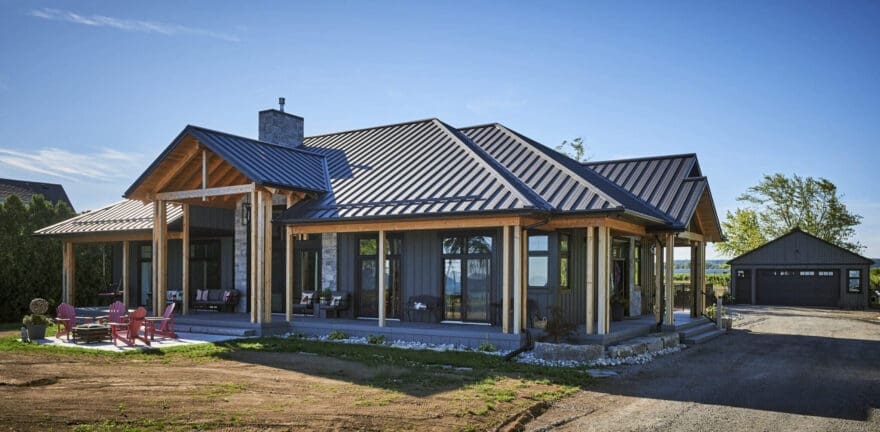
Choosing the right custom home builder is a critical step in your home-building journey. A reputable builder not only ensures the construction process runs smoothly but also that your home is built to the highest standards. With the right builder, you can avoid common pitfalls and enjoy the process of creating your dream home. Here’s how to make an informed decision.
Research and Recommendations
Start with Research
Begin by researching builders in your area. Look for builders with extensive experience in constructing custom homes and a portfolio that aligns with your vision. Online reviews, testimonials, and ratings on websites like Houzz, Google, and the Better Business Bureau can provide valuable insights into a builder’s reputation and reliability.
Seek Recommendations
Word of mouth is a powerful tool. Ask friends, family, and colleagues for recommendations. People who have recently built custom homes can provide firsthand experiences and insights into their builders’ quality of work and customer service. Additionally, attending home shows and open houses can give you an opportunity to meet builders and see their work in person.
Key Questions to Ask
Once you have a shortlist of potential builders, it’s time to dig deeper. Here are some essential questions to ask:
Experience and Credentials
- How long have you been building custom homes?
- Can you provide references from recent clients?
- Do you have any industry certifications or affiliations?
Project Management
- Who will be my main point of contact throughout the project?
- How often will I receive updates on the progress of my home?
- How do you handle changes or modifications during the construction process?
Quality and Craftsmanship
- Can I tour some of your completed projects or homes under construction?
- What standards do you adhere to in terms of materials and construction techniques?
- Do you offer any warranties on your work?
Financial Transparency
- Can you provide a detailed estimate or quote?
- How do you handle cost overruns or unexpected expenses?
- What is the payment schedule?
Evaluating Contracts
A well-drafted contract is crucial to protecting your interests and ensuring a smooth construction process. Here’s what to look for in a contract:
Detailed Scope of Work
The contract should clearly outline the scope of work, including detailed specifications of materials, fixtures, and finishes. Ensure there is a comprehensive list of what is included in the project and what is not. This level of detail helps prevent misunderstandings and ensures both parties have a clear understanding of the project.
Timeline and Milestones
A clear timeline with milestones is essential. The contract should specify the start and completion dates, as well as significant milestones throughout the construction process. Understanding the project timeline helps you plan better and hold the builder accountable for any delays.
Payment Terms
The contract should include a detailed payment schedule, outlining when payments are due and the amounts. Payments are typically tied to project milestones. Avoid builders who demand large upfront payments, as this can be a red flag. A reputable builder will have a fair and transparent payment schedule.
Change Order Process
Changes during construction are common. The contract should outline how changes will be handled, including how they will be documented, approved, and priced. A clear change order process ensures that any modifications to the original plan are managed effectively and without disputes.
Warranties and Guarantees
Ensure the contract includes details about warranties and guarantees on workmanship and materials. A reputable builder will stand behind their work and offer warranties that provide peace of mind. Understand what is covered, the duration of the warranty, and the process for addressing any issues that arise.
Trust Your Instincts
Finally, trust your instincts. Building a custom home is a personal experience, and you should feel comfortable and confident with your builder. Communication is key, so choose a builder who listens to your ideas, answers your questions, and addresses your concerns promptly. A good builder-client relationship is built on trust and transparency.
Conclusion
Choosing the right custom home builder is a crucial step in ensuring your dream home becomes a reality. By conducting thorough research, asking the right questions, and carefully evaluating contracts, you can select a builder who meets your expectations and delivers high-quality work. Remember, the goal is to find a builder who is experienced, reputable, and aligned with your vision. With the right builder, the journey of building your custom home can be a rewarding and fulfilling experience.









